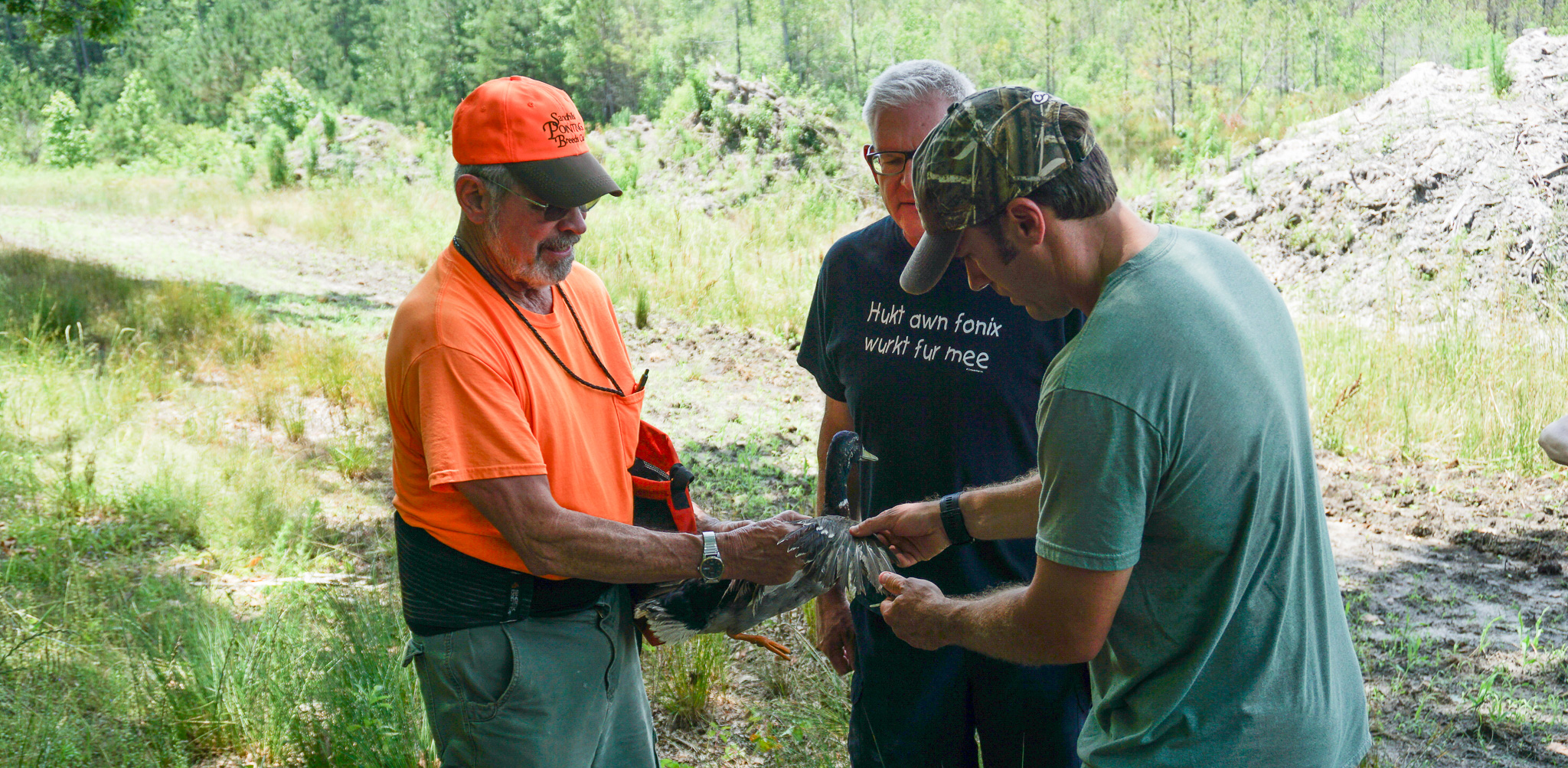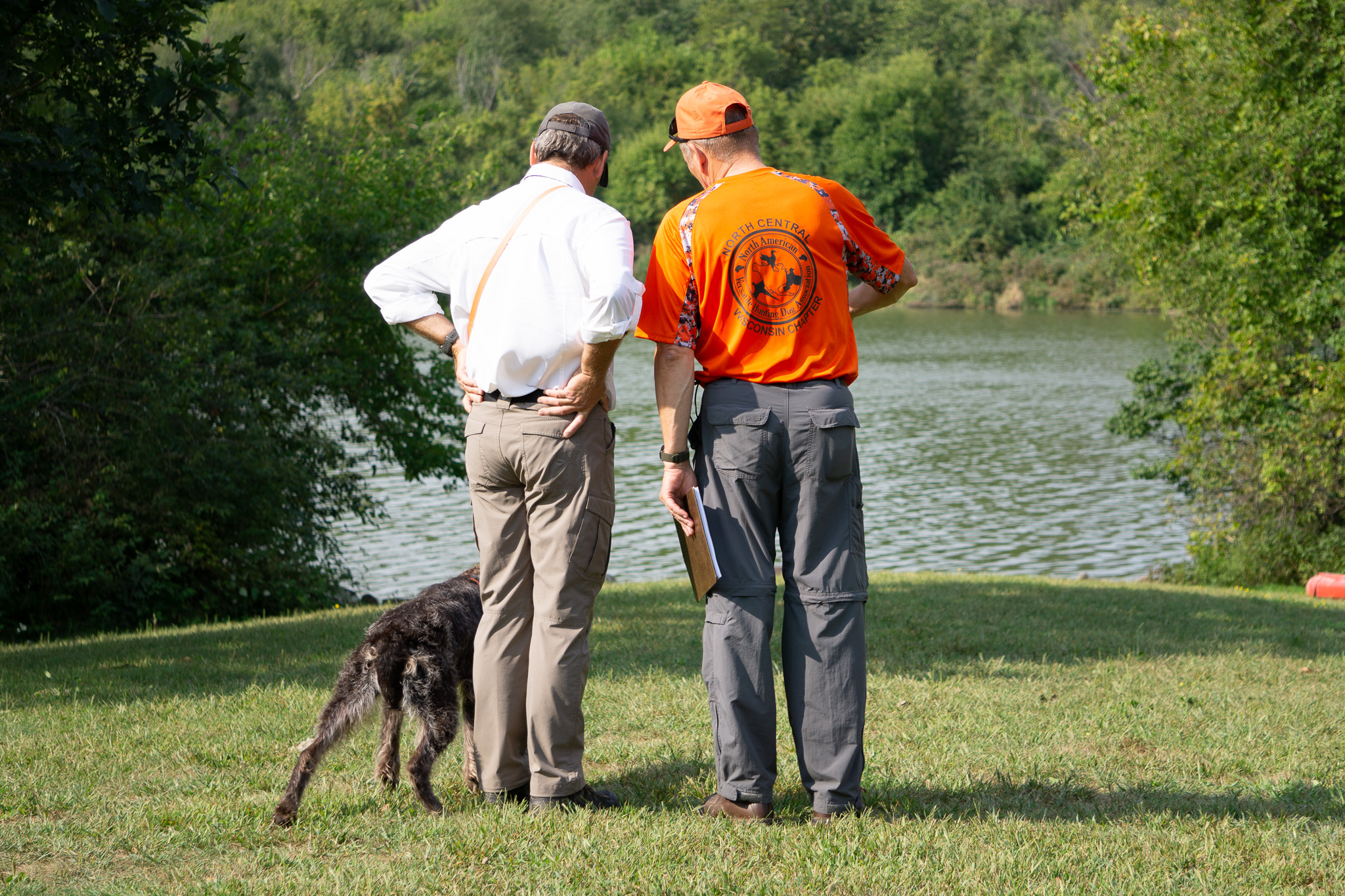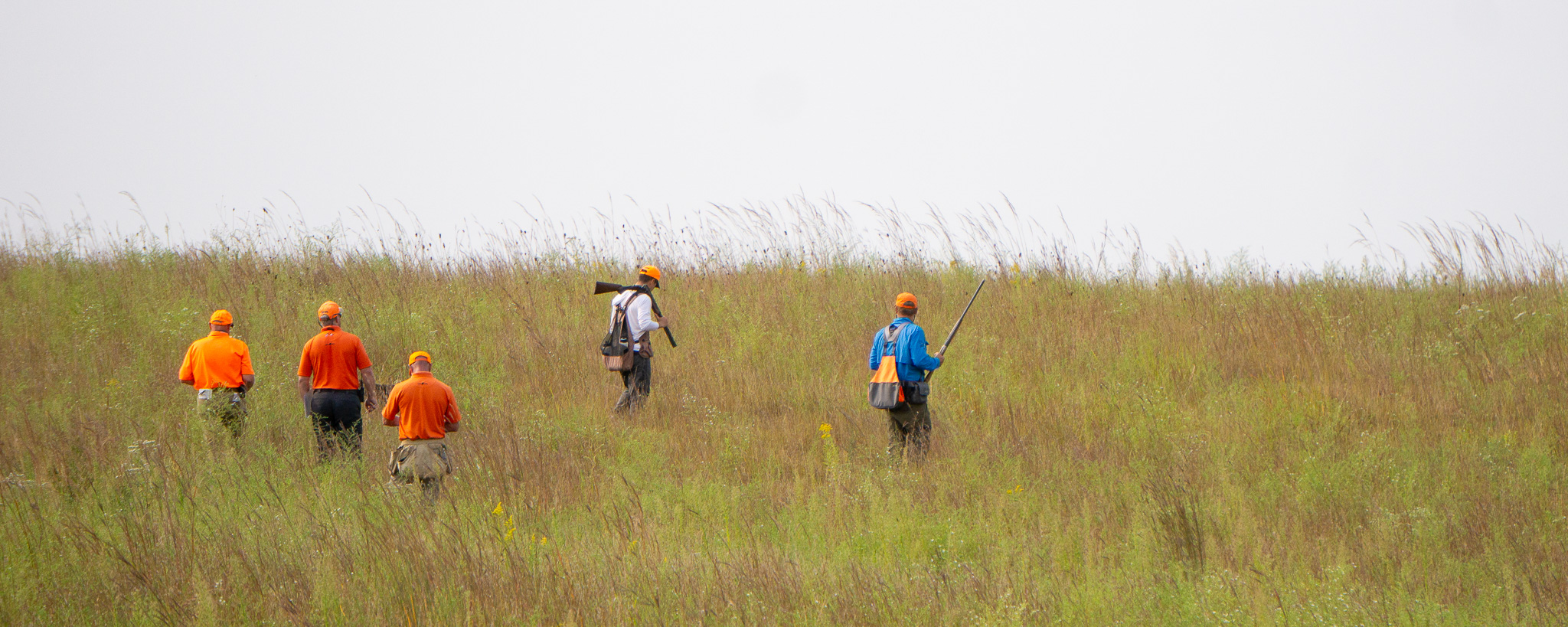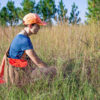Have you ever volunteered at a NAVHDA (North American Versatile Hunting Dog Association) test? Maybe you have been a member of NAVHDA for a long time and you’ve helped at multiple tests. Or maybe you are new and haven’t had a chance to volunteer yet. Chapters always need volunteers to put on tests. If your chapter has an upcoming test and you’re thinking about going, I would highly encourage you to do so.
NAVHDA is Based on Volunteerism
Volunteers are the heart of NAVHDA. If you aren’t ready to test your dog, you might be thinking, why do I need to go to this test? But the truth is, when it’s your time to test your dog, there will be people volunteering to make sure you have a successful day. It’s the right thing to do to return the favor, even if it’s in advance of you testing.
What to Expect
There’s no way around it, NAVHDA test days are long. Tests usually begin around 7am, or at first light, and they go well into the afternoon. They are different than AKC hunt tests and field trials, for example. At those events, there typically isn’t a group announcement or meeting in the morning. NAVHDA chapters usually ask everyone involved – volunteers, handlers, and judges – to be there early. This means you’ll likely be expected to be on the grounds at 6 or 6:30am and stay the majority of the day, if not the whole day. I know getting up that early is not pleasant, but if you plan ahead, it’s more doable.
There can also be a lot of waiting around. This will be alternated with bouts of needing to do things quickly. For example, if you are volunteering as a bird planter, when the dogs are running in the field, there isn’t a whole lot for you to do, unless you are putting more birds into bird bags, or cleaning shot birds. But when the judges signal that they are done with one dog and ready for the next, the bird planters need to jump into action and quickly plant birds in the field. It’s helpful to bring a folding chair to NAVHDA tests. This down time also allows you to socialize with other members or ask questions.
You Don’t Need Experience
Some newcomers may be intimidated to volunteer at a NAVHDA test because they might feel like they don’t have the right skills. There are a variety of tasks that need to be done. Some, like gunning, do require specialized skills and are not for everyone. But many others, like helping with lunch, running the Zinger Winger, or helping prepare ducks for duck search, are relatively simple. More experienced chapter members will be happy to show you what to do.
Chapters may also need help setting up the day before or cleaning up on the last day of testing. These are simple tasks like putting up or taking down shade tents, placing water pools in the field, cleaning up trash, etc.

A group of volunteers prepares a duck for duck search at a NAVHDA test.
Take the Opportunity to Learn
If you are new to NAVHDA, volunteering at a test is a great way to really understand the NAVHDA testing system. While you can learn a lot at monthly training days, seeing all the pieces come together at a test is invaluable. It’s also useful to watch the dogs and then pay attention to the scores when they are announced in the afternoon. If you don’t understand something, you can ask a more experienced chapter member or a judge if they have a free moment.
It’s also valuable to pay attention to the handlers and see how they deal with situations when things go awry. A quick decision by a handler can sometimes make or break their score.
I remember one of the first NAVHDA tests I volunteered at. I thought a lot of the dogs did really well and I was surprised at how low the overall scores were when they were announced. It helped me really understand the intricacies of NAVHDA’s scoring system and how the minimums work. For more detail on the scoring, see the Aims, Programs, & Test Rules booklet.
Volunteers Ensure a Smooth Test
A sufficient number of volunteers is necessary to keep a NAVHDA test running smoothly. There’s a lot to fit into one day: three events for Natural Ability tests and four for Utility Preparatory/Utility, not to mention what is required for the Invitational. The day can run longer than needed if there aren’t enough volunteers.
Another important role of a volunteer is to make sure the judges have everything they need. After each test, the judges rate the chapter on the quality of their grounds, the quality of the birds, and how well the chapter was organized and was able to pull off a successful test. In order to keep having tests, chapters need to earn sufficient scores. The number and attitude of the volunteers can directly affect this.

A judge gives instruction to a handler during a NAVHDA test.
Volunteering at a NAVHDA Test is an Enjoyable Experience
I’ve also had a good time when I’ve volunteered at a test. Yes, it’s a long day, but you get to be outside and watch dogs do what they were bred to do. At the end of every test day, everyone sits down together to hear the judges read the scores for each dog. It’s a moment for the handlers, volunteers, and judges to appreciate the hard work that went into the day and celebrate/commiserate together. This is one of the things I really appreciate about NAVHDA. Since all NAVHDA tests are noncompetitive, people are usually very supportive of each other.
Have you ever volunteered at a NAVHDA test before? Did I miss anything about the experience of being a volunteer? Leave me a comment below.




